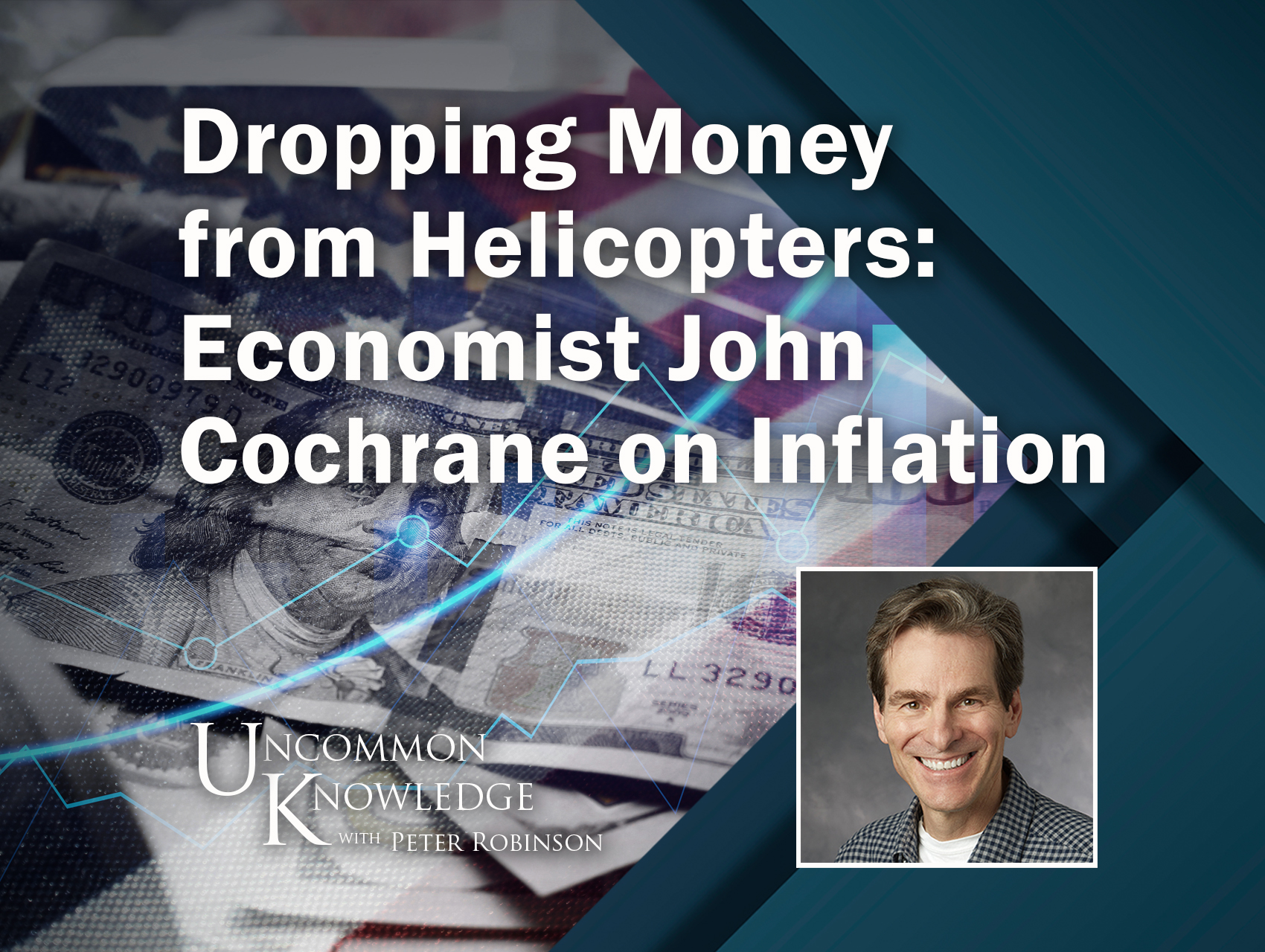The Grumpy Economist podcast is back, with some thought on the debt issues from my last posts
here and
here.
David Andofatto had some
final thoughts at macro mania, with which I mostly agree. Yes a twitter/blog debate in macroeconomics produces agreement! Central points:
1) For these purposes a large sharp inflation and a default are not much different. In fact, the event I have in mind is most likely an inflation, as the US is likely to choose inflation over default. I don't think I made this equivalence clear in the debt posts. Also, the Fed is just another issuer of interest-paying debt.
However, I don't think the chance of default or haircut is as remote as everyone else seems to think. They are also related events. Remember, my scenario for a debt crisis posits an economic and political crisis at the same time -- pandemic, recession, war, huge demands on the US treasury. Just how sacrosanct will full repayment of debt be to the US political system? When Chinese central bankers and Wall Street fat-cats are pressing for debt repayment but ordinary Americans are hurting, will our political system really take hard measures to repay the former in full, while throwing everyone's lives into misery via inflation? Maybe, and maybe inflation can still be blamed on speculators and middle-people and the usual bogey-people but maybe not. A haircut on Treasurys is not inconceivable. It could also come via refusal to raise the debt limit, or via a sharp wealth tax. And if people start to fear a haircut coming, they will certainly dump debt immediately, so fear of even technical defaults can spark the inflation.
2) Yes, a good part of current r<g may well be a liquidity premium for US government debt due to its usefulness in transactions. But the big questions for r<g remain how reliable and how scaleable. Liquidity demand is not very scaleable. For example, if a government is financed only by money and no debt, and money demand MV=PY, then the government can run perpetual small deficits as the real economy Y and hence money demand grow. But if the government sees this situation, says "great, r<g, let's blow $10 trillion bucks," it will soon discover this opportunity does not scale at all.
In the more reasonable MV(i)=PY that money demand is interest elastic, as the government exploits the opportunity and supplies more M it must pay greater interest on money (interest on reserves, interest on money-like treasurys), eating away quickly at r<g.
The sensible r<g advocates like Blanchard recognize that r<g does not scale infinitely, and that a rise in r captures its limit. However, the discussion usually goes quickly to crowding out and the marginal product of capital rising. The liquidity effect that depresses US government bond yields is likely much less scaleable than crowding out of the whole US capital stock.
When you read estimates of how much r rises as debt/GDP rises, pay attention to which mechanism they have in mind.
Liquidity demand is also more fickle. Money demand can rise and fall quickly. The portion of treasury demand that comes from its use in financial transactions can be undone by different payment and clearing technology. Relying on this poorly understood mechanism for 30 years of r<g to pay off our debt seems a bit risky. US sanctions and regulations are creating a big incentive for others to create such alternative mechanisms.
3) The government should borrow longer. The Fed can help.
One of my policy conclusions is that the US government should borrow long-term as households who fear a big rise in interest rates should get 30 year mortgages not adjustable rate mortgages. Currently the Fed is actively undoing the Treasury's meager efforts to borrow long term, by buying up long-term treasury and guaranteed agency debt and issuing overnight reserves in return, and by issuing new debt in the form of overnight debt.
The Fed could easily introduce term deposits -- reserves that carry a fixed interest rate, rather than a floating rate, and whose principal value varies. The Fed could also engage in fixed-for-floating swap contracts to eliminate the government's exposure to interest rate risk. (Such swap contracts should be collateralized of course, since you don't buy insurance from someone you will bail out if they lose money!) If interest rates rise the Fed will not just rescue the US government from a crisis, but will look like bloody geniuses. Which would you rather as a central banker in a crisis: a huge rise in net worth with which you can bail out the Treasury, or to fight an immense mark-to-market loss?




